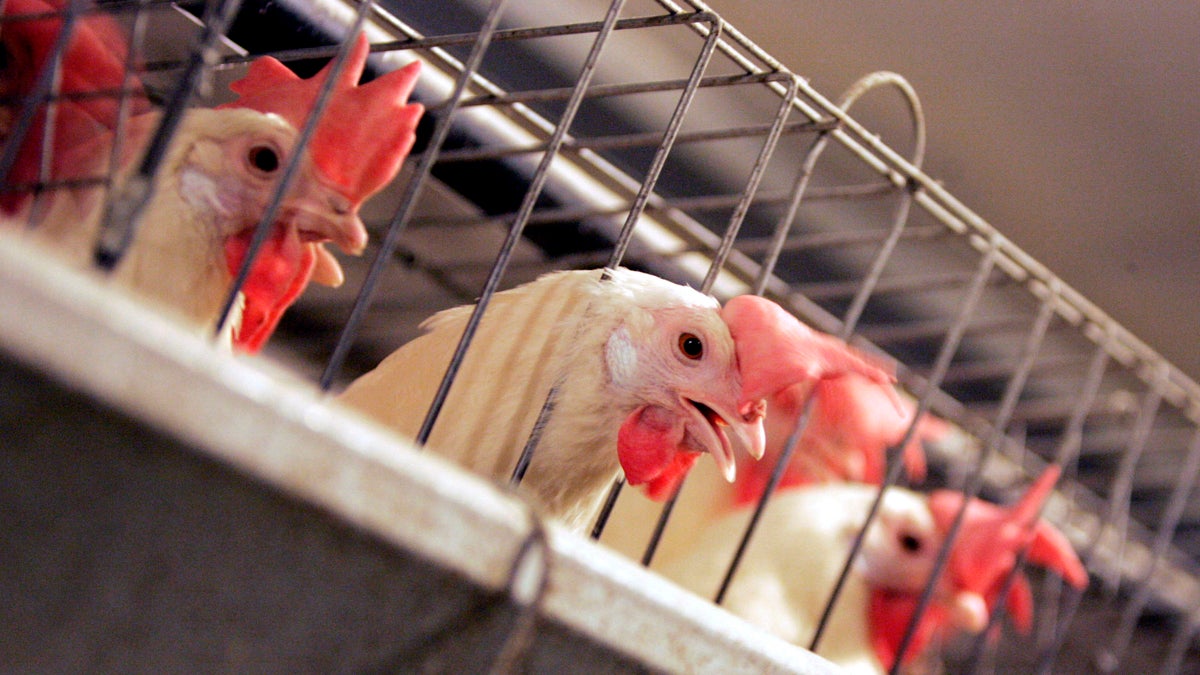On ‘Radio Times:’ Dangerous working conditions at major poultry plants are well known. How do they stay open?

In this Sept. 10, 2008, file photo, chickens huddle in their cages at an egg processing plant (Marcio Jose Sanchez/AP Photo, File)
On Radio Times Friday, host Marty Moss-Coane spoke with ProPublica reporter Michael Grabell about his recent story about the hazards at the Case Farms processing plants. One of the more extreme examples was a sanitation worker losing his leg in a machine.
If you’ve had KFC, Taco Bell, or Popeyes in recent years, you’ve eaten chicken from Case Farms. And while you may know how the chicken tastes, the process of how it reaches your fast food wrapper might unsettle your stomach. Immigrants are recruited by the company’s human resources department, but once they begin working at the poultry rendering plant, they can be subjected to extremely dangerous and illegal conditions.
On Radio Times Friday, host Marty Moss-Coane spoke with ProPublica reporter Michael Grabell about his recent story about the hazards at the Case Farms processing plants. One of the more extreme examples was a sanitation worker losing his leg in a machine.
The Occupational Safety and Health Administration (OSHA) called Case Farms “an outrageously dangerous place to work.” So why hasn’t the company or their facilities been closed down? As Grabell explained to Marty that “OSHA has very limited authority to shut down a work place because of safety issues,” adding “all they can do is fine, and go through what can be a lengthy appeals process.”
Marty and Grabell also discussed how the workers are recruited and other forms of exploitation that Case Farms uses in staffing their processing plants. His story, published in ProPublica and The New Yorker, is “Sold for Parts.”
To hear more about the hazards of food processing, listen to the full interview on Radio Times.
WHYY is your source for fact-based, in-depth journalism and information. As a nonprofit organization, we rely on financial support from readers like you. Please give today.




